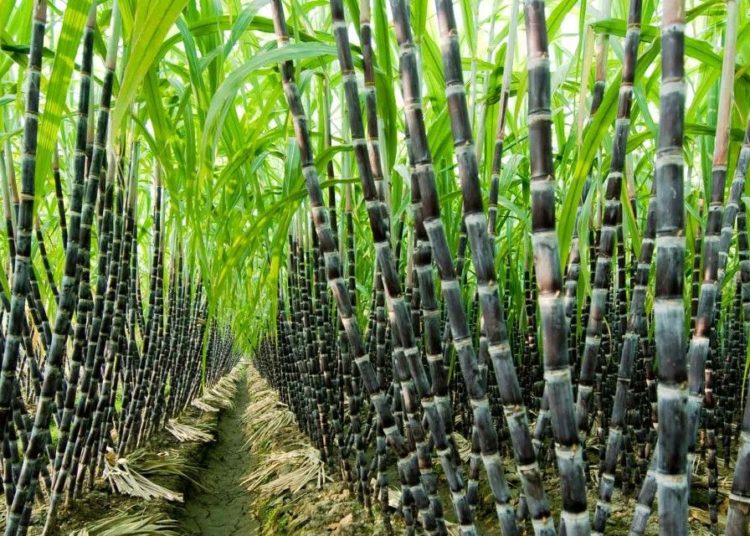Sugarcane with scientific name, Saccharum officinarum is a very sweet perennial grass which is primarily cultivated for its juice from which sugar is processed.
Sugarcane can be grown well in most soil types as long as they are well-draining but the plant’s favourite type of soil is with a pH between 5.0 and 8.0 and If you don’t live in a region that receives a lot of rainfall, it will need a good amount of additional irrigation to grow well.
Overall, sugarcane is best suited for subtropical and tropical regions of high temperature of 26 to 330C and can be grown well in most states in Nigeria with Kwara, Kano, Niger, Jigawa, Taraba, Katsina, Sokoto and Kaduna states taking the lead in the production today.
Planting Process
One you clear the bush, get your freshly harvested cane stem ready and start the planting of sugarcane by cuttings of either the stem or some sections of the stalk. This process called setts. Another way is to plant settlings which are sections of the cane with the roots or shoots.
The sugarcane setts or settlings should be planted horizontally into furrows or trenches of about 4 inch deep and you can hire labourers to plant the cuttings in a spacing of 1.4 m + 0.4 m, 0.15 m.
After planting, it is important you take care of your crop and start weeding after two weeks or use herbicides such as Atrazine at five litres per hectares so that you can get the best economic quality and yield of the plant and you can still improve your yield by harvesting early before the cane start drying.
On the average it takes approximately 12-16 months for sugarcane to mature and you can harvest four times from a single planting.
Minimum Capital
You can start a sugarcane farming with as little as a capital of N200,000 on a semi-large scale of 1 hectare or less depending on how large you want the farm to be. In some areas you can rent an acre of land for as low as N50,000.
Profitability
Sugarcane can generate huge income for farmers and traders. Apart from it being eating directly, it can also be grown for biofuel production and the canes can be used directly to produce ethyl alcohol, that is ethanol.
The by-products from cane sugar processing which is straw can be bought by herders to feed their livestock. It can be used to make sugar or even consumed directly in confectionery, used to sweeten beverages, as a preservative in jams and conserves and as a decorative finish for cakes.
Job Opportunities
Sugarcane is an economic grass which can be harvested commercially with potentials to create good number of jobs for harvesters, loaders, sellers and even processors. Through this, those farming it can make good fortunes.
of paramount importance as well.





